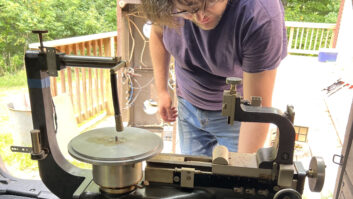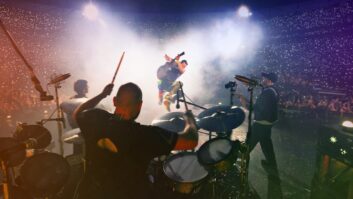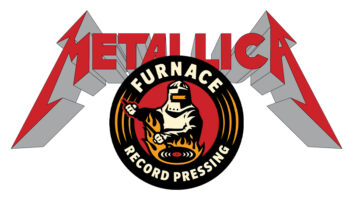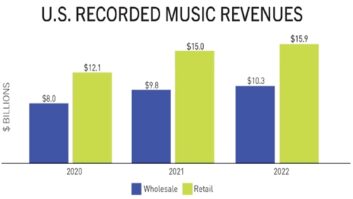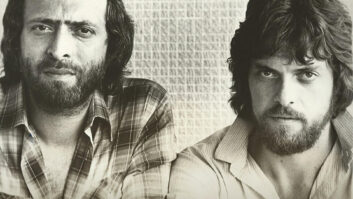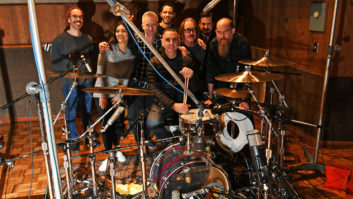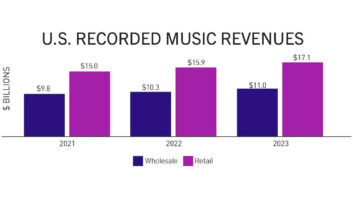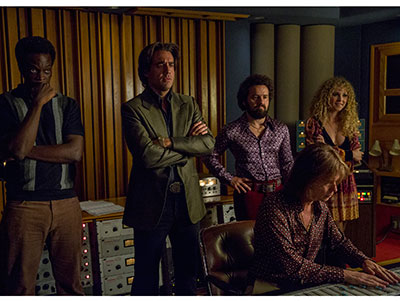
The year 1973 is a rich and diverse one for music. That’s the time period that two of the collaborators on Boardwalk Empire, namely, Martin Scorsese and Terence Winter, and their music supervisors, Randall Poster and Meghan Currier, plus producer/engineer/mixer Stewart Lerman tapped into for HBO’s newest smash, Vinyl.
Vinyl is the story of the music business set in 1970s New York, at the cusp of punk, hip-hop, and disco, at a time when the industry is filled with powerful old guys and drug-doling young girls. In addition to the powerhouse production and music team, Vinyl has a bonus stamp of credibility with Mick Jagger in place as its co-creator, executive producer and executive music producer—and his son, James Jagger, as one of the show’s stars, playing, naturally, a musician.
“The great golden age of rock ’n’ roll is ’67 to ’71,” says Poster, who is no stranger to music-based films, having worked on, among others, Todd Haynes’ glam-rock homoerotic love story, Velvet Goldmine. “You have a lot of music people are still listening to from the ’60s, and the specter of that decade is bleeding into 1973.”

Randall Poster
Poster is a veteran music supervisor with more than two decades of creating a musical experience to accompany visuals. Currier has worked with Poster since Boardwalk Empire, forming a strong, balanced team with a clear vision. This comes in handy as there are anywhere from 20 to 30 songs included in each episode, hitting 60 in the two-hour pilot.
Atlantic/Warner Bros. is releasing two full soundtracks to bookend the first season, as well as a five-song digital-only weekly release every Friday in between as a preview to the upcoming episode on Sunday. These releases are a cross-section of vintage songs from the original artists, vintage songs re-recorded by contemporary artists, and original songs written for the show. There is no genre limitation, with material from Otis Redding to Mott The Hoople, Jerry Lee Lewis to Foghat and covers from Aimee Mann to Julian Casablancas, Neko Case to Andrew WK. Greg Calbi has mastered both the classic and the new recordings for a smooth, even listening experience.
“I became the expert on the music of the 1920s era during Boardwalk Empire because people are not familiar with the repertoire,” says Poster, who won a Grammy in 2012 for Best Compilation Soundtrack Album for Boardwalk Empire and another one in 2014 for the Grand Budapest Hotel soundtrack. “1973, everybody is an expert. There were interesting and unique challenges to that. Songs that are one person’s guilty pleasure are another’s sacred song. It was an interesting calculus to land on the right thing and find repertoire that would still be surprising to a 2016 audience, and how to fit in some familiar pieces to give people their period grounding.”

Dustin Payseur as Duck (guitarist), Jack Doyle Smith as Otto (bassist), James Jagger as Kip Stevens, Thomas Gardner as Nolan (drummer). Photo; Macall B. Polay/HBO.
Everyone in the inner Vinyl crew had piped in with their musical ideas as Poster looked at period publications and trolled YouTube, whose right-hand suggestion bar would lead him down the rabbit hole with sometimes interesting results. And while Vinyl is not billing itself as a documentary in any way, the team is strict in terms of locking into the period of the show, in part to allow the emerging music scenes of the time to appear organically as the story progresses. And in part because Jagger was keeping them in check as far as the backstories of the characters, in order to insinuate and implicate the inspiration of the building blocks for the music’s evolution.
Part of the authenticity of the show is in the casting of the on-camera musicians, as well as those who are involved with re-recording the period classics and original songs. Poster and Currier are involved with both sides of this process, starting with rehearsals of the musicians in order to appear as genuine as possible to the viewer. Along with Lerman, Sonic Youth’s Lee Ranaldo and producer Don Fleming shaped the recordings for Vinyl’s prototype punk band, Nasty Bitz, using the blueprint and music of pre-punk anti-heroes, Jack Ruby. Lerman worked with Dap Kings’ Gabe Roth, who is responsible for making Hannibal, the show’s Sly Stone/Curtis Mayfield music come to life, while Charlie Wilson lent his singing voice to the character.
“The people we worked with on the recordings specialize in that style of music,” says Lerman, who recorded the music for Vinyl at Electric Lady and Avatar, taking full advantage of those studios’ Neve 80 series analog consoles while recording to Pro Tools. Lerman’s usual collection of front-end equipment—for example, Neumann U 47, U 48, M 49 tube and ribbon microphones and Teletronix LA-2A and UREI 1176 compressors—tends to be from that era.

Stewart Lerman at Electric Lady Studio A. Photo: Ian Gittler
Says Lerman, “Part of the reason for using some grittier tube gear is because we’re recording digitally and not on tape. It’s nice to be able to push some harmonic distortion out of the gear and have it sound good, like tape did. The mic pre’s on the desk and the compressors, if you drive them really hard, it gets the sound pretty period. Nice and crunchy and grungy and not modern, which is cleaner and more transparent.”
Like everyone, Lerman is a fan of that musical era and also grew up during that time. As such, he has a good understanding of the vibe that needs to come across and conveys that to the musicians with whom he is recording. He’ll meet with them, read the scene and put it in the context of the script, listen to old records, have discussions, make adjustments, and determine what the music ultimately has to reflect before beginning recording.
“If you’re trying to capture something someone’s not playing period correct with period-correct equipment, then it’s not going to sound period correct,” says Lerman who records the musicians playing together as a band—even if they’re not a band in real life. “It really starts with the players understanding or coming from that era of making records. Understanding how to tune the drums, what guitars to use, what amps to use, what effects to use, that’s such a huge part of it. Once you get people who really understand how to make records from that era in that style, capturing it is so much easier when someone is giving you the right stuff to source.”
